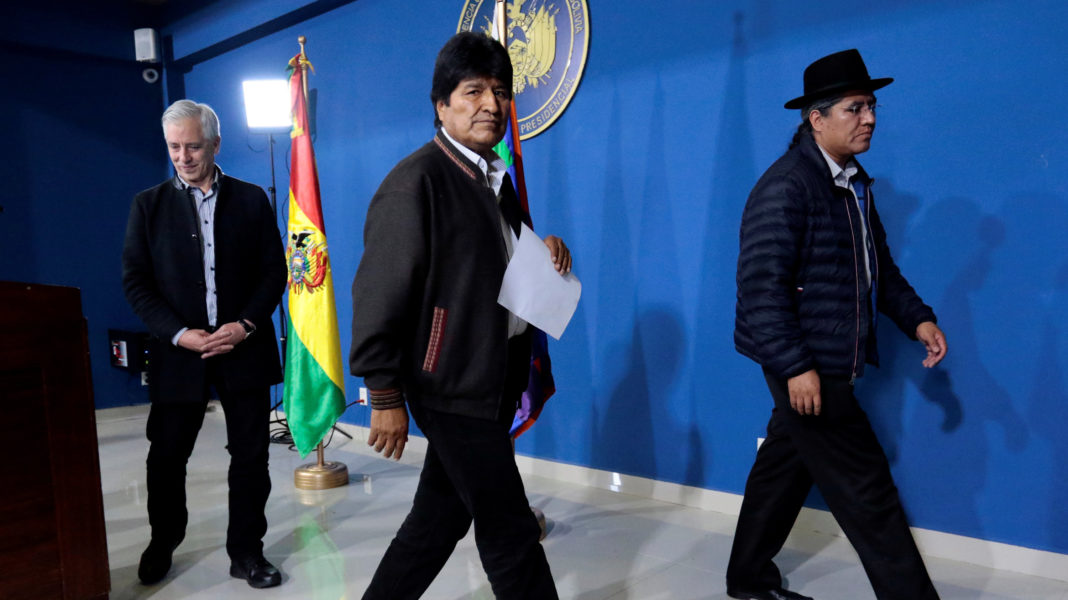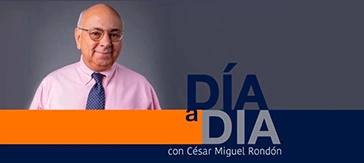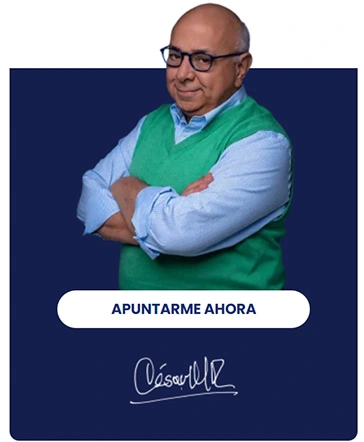Publicado en: Caracas Chronicles
Por: Rafael Osío Cabrices
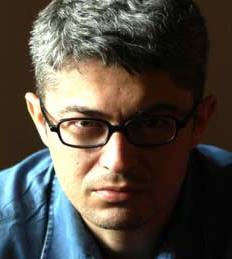
Between 2003 and 2005, I made three long trips to Bolivia, to cover a regional summit and research for a book on the crisis of Latin American democracies, El horizonte encendido. I met Evo Morales when he was still a congressman. I interviewed Álvaro García Linera, his right hand, who was the country’s vice-president until yesterday, and also Víctor Hugo Cárdenas, another Aymara politician like Morales, who had been the vice-president during the interrupted government of Gonzalo Sánchez de Lozada. I spoke with rich businessmen who were part of Comité Cívico Pro Santa Cruz, the powerful association of industrialists and politicians that defends the interests of the elite in Bolivia’s economic capital, Santa Cruz de la Sierra. I talked to journalists, scholars and former presidential candidates, and also a lot of common folk. I went to a rally with Hugo Chávez and Evo Morales, at a soccer stadium full of people who couldn’t understand the baseball references of the Venezuelan caudillo, or even Spanish: most of them where Aymara or Quechua, wore traditional clothing and chewed coca leaves, eating roasted guinea pigs and boiled corn. I crossed the country on a bus, from Santa Cruz de la Sierra to the militarized El Chapare, the land of coca where cocaine producers like to source, and from there to Cochabamba and La Paz, the capital at 4,000 meters above sea level.
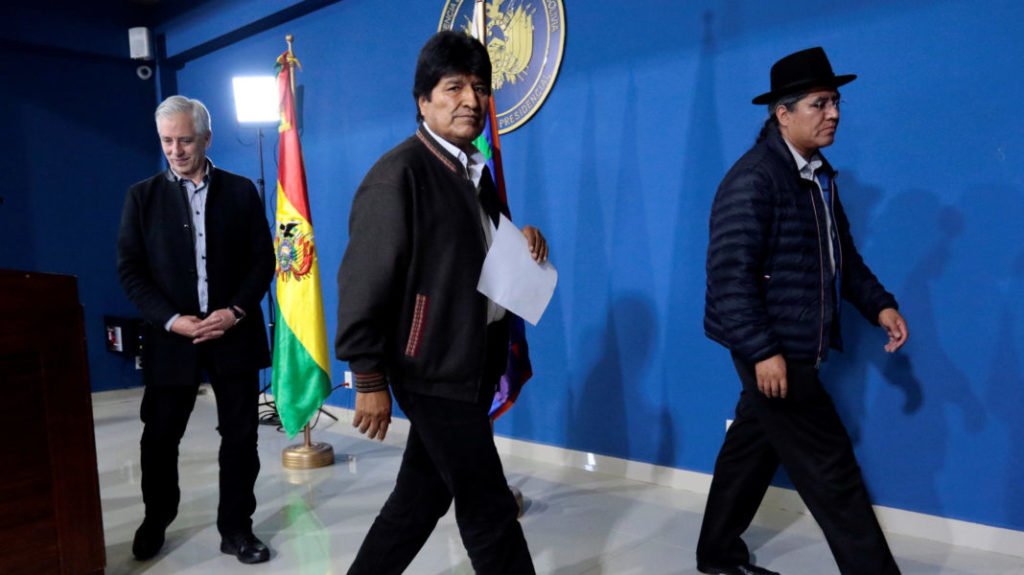
I understood how different that fascinating country is from mine, named after the caraqueño who designed it as a nation-state, Simón Bolívar, with a “constitutional capital” named after Antonio José de Sucre, the young Venezuelan Marshal who tried to organize it as its first president. Now, many people will yield to the temptation of expecting a domino effect, a contagion in Venezuela from what just happened there, given how Evo Morales was a protegé of Chávez and his petrodollar-packed activist diplomacy when he was an emergent leader. But I don’t think the apparent fall of Evo should be seen as a fracture of the Bolivarian alliance, as if he was a sort of Erick Honecker of the Andes and his resignation on November 10th was a fall-of-the-Berlin-wall kind of event.
And the reason is that Bolivia is very different from us. So was the Evo Morales administration.
Morales is not Maduro. He didn’t reach the extent of authoritarianism that is so evident in Chávez’s heir, although Morales did perform a takeover of the Bolivian state very similar to what happened under chavismo, or other populists like Turkey’s Recep T. Erdogan. He and his socialist party, MAS, forced institutions to retain and increase power, harassed their opponents, and used state resources to impose propaganda and manipulate the needs of many. But Morales didn’t cross the threshold into open dictatorship as Maduro did, not because Morales is a true believer of liberal democratic values, of course; he just overestimated his chances of reelection, against the Constitution, and ended up losing support from people inside his party, the police, the military, and the very combative and organized network of miners and farmer organizations that are a strong feature of Bolivia’s political life. Those same organizations which were key in turning him from a local activist for coca growers in the jungles of El Chapare to a La Paz-based national leader who could topple governments, and win a presidential election.
Morales was able to keep a good relationship with the brass during all these years, but his administration wasn’t ridden with guys in uniform, such as Chávez’s (an Army man himself) and Maduro’s (who is heavily dependent on them). The Morales movement wasn’t driven by the desire of the military to be in charge again, as it happened with chavismo. On the contrary, he rose to power as the head of an alliance of Marxist scholars and politicians, such as García Linera, and grassroots organizations in the mines of the highlands and the coca farms: people who have decades-long tradition and know-how of political organization, massive strikes, and even violent resistance. Another absent factor in Venezuela.
The mere fact that Morales, an Aymara, became president seemed logical in a nation where 60% of the population is indigenous—another big difference with the very mixed Venezuela—and he took a series of important measures to reduce the centuries-long inequalities. Most importantly, during the first half of the Morales years, Bolivia experienced an economic boom, driven by the international prices of its minerals, soy and gas exports. In a country that went through economic shocks and hyperinflation, this boom reduced poverty and brought stability and growth. MAS and Morales could be friends with Chávez and Maduro, but they didn’t destroy the Bolivian economy, which is still functional, to the extent that his country, one of the poorest in the Americas, is now receiving Venezuelan migrants. But as the export income fell and the fiscal deficit grew, people started to see hard times come back again. As it has been during these last years of decreasing commodity prices in the region, the Morales government went into debt and autocracy. The people wanted him out. He insisted on staying.
Now, Bolivia could restart the destabilizing forces that 14 years of Morales kept at bay. Here, again, we can’t see it as the-day-after-Maduro; the Bolivian situation is a different thing entirely.
Bolivia is like two countries for the price of one: the Andean plateau—very populated, predominantly indigenous, left-leaning, highly organized in unions—and the media luna, or crescent of the lowlands—less populated, culturally and economically closer to Brazil and Argentina, and under the influence of the agro-industry barons represented by the Comité Cívico Pro Santa Cruz. The two halves of the country will compete for control of what will happen next, while MAS tries to recover from this fall and prepare for a return to power (with the predictable assistance of the Venezuelan and Cuban regimes). This is a new source of unrest in the region and it’s too soon to think about how it could impact the chances of a democratic transition in Venezuela… if it will have any effect on it.
For the moment, let’s hope the best for the Bolivian people who took to the streets to say no to another leader expecting to rule beyond the allowed time. They earned the privilege of actually seeing him leave.




